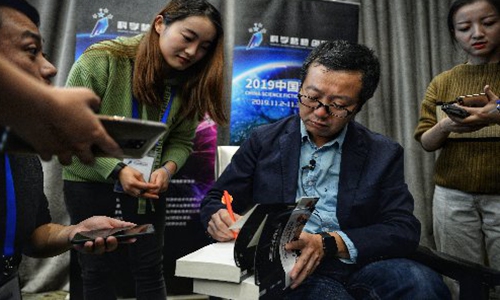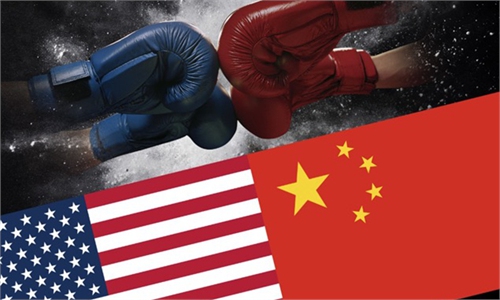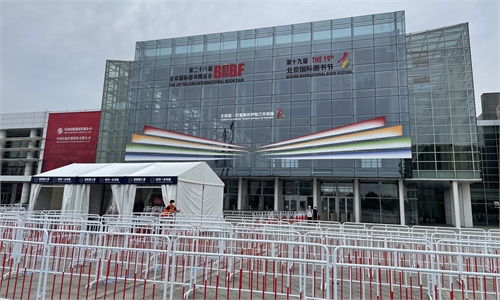ARTS / BOOKS
Children’s fiction boosts Chinese sci-fi industry

Liu Cixin File photo: IC
China's push for technological innovation has been accompanied by a widespread fascination with science fiction in recent years, and now the children's sci-fi industry is booming.
At the 2021 Children's Science Fiction Conference in Southwest China's Chongqing Municipality on Friday, prizes were handed out at the first annual Xingyun (Nebula) Awards for children's science fiction, drawing attention to the sector's rapidly growing economic significance.
The market value of China's sci-fi peripheral products amounted to 1.35 billion yuan ($210.83 million) in 2019, according to a report released by the China Science Fiction Research Center of the China Research Institute for Science Popularization together with the Research Center for Science and Human Imagination at the Southern University of Science and Technology.
The market value of sci-fi-themed peripheral products, mostly children's sci-fi toys, including toy guns, shape-shifting robots and building blocks, reached 850 million yuan in 2019, accounting for 63 percent of the total sci-fi peripheral product market, the report said.
"Children's sci-fi is becoming the focus for literary creation and incubation," said Dong Renwei, a sci-fi writer and founder of the Nebula Awards.
Liu Cixin, the renowned Chinese sci-fi writer behind the Hugo-award winning novel The Three-Body Problem and chairman of the awards' organizing committee, said, "As time advances, the scientific fantasies that people read about in their childhood will become more and more real. Compared with fairy tales and other fantasy literature, sci-fi has a more profound influence on the future of young readers."
Liu said that children's sci-fi is a literary genre full of vitality, and its position in both sci-fi and children's literature is irreplaceable.
Despite a number of outstanding writers and works that have emerged in recent years, the children's sci-fi industry is still behind the times, Liu added, calling for efforts to expand the audience and explore new distinctive creation and publishing paradigms.
Children's sci-fi works should be transformed into cartoons, songs, picture books and other forms, to accompany kids from their early childhood, said popular children's sci-fi writer Chaoxia, the pen name of Yin Chao.
"Only in this way can the future generations create more advanced sci-fi works," said Chaoxia.
The Nebula Awards are a first for China, aiming to promote the genre and attract more youngsters to write children's sci-fi.



